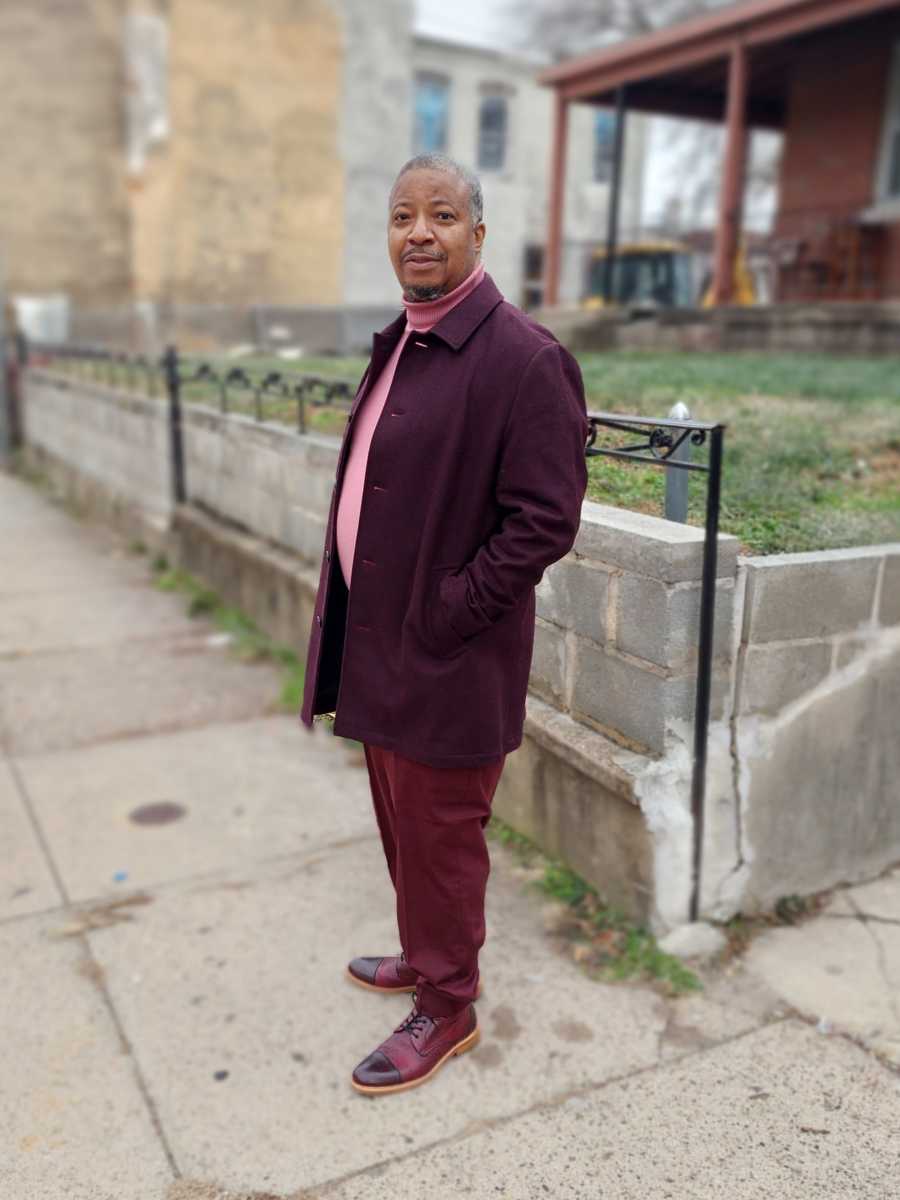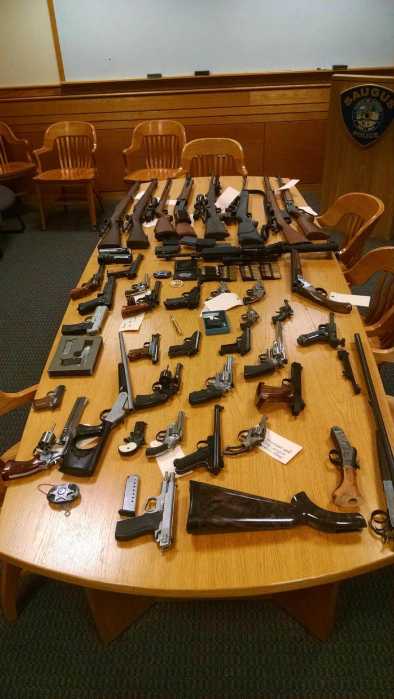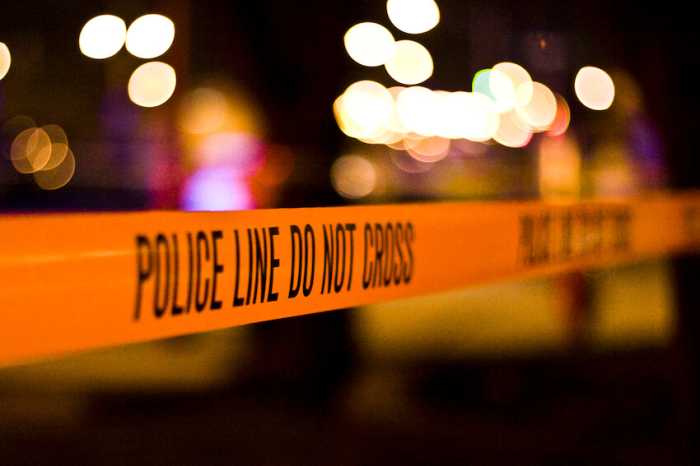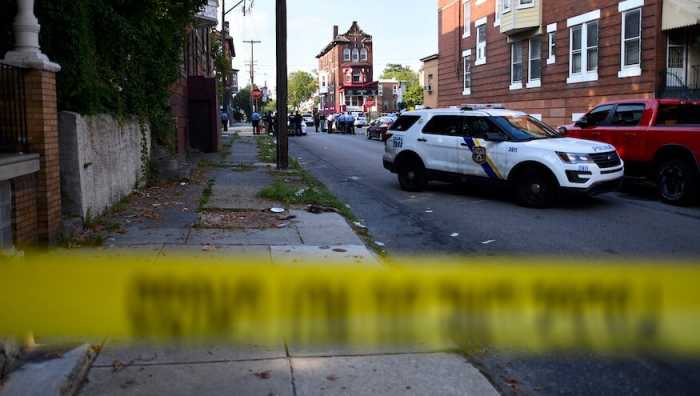The young men attending T.E.A.M. Inc.’s “I Have a Dream Black Male Symposium,” an empowerment event for young men of color co-sponsored by another helper organization, Tools for Success Inc., weren’t quite sure what to make of Ronald Crawford.
Clad in black jeans, matching boots and a red hoodie, Crawford gathered the group in a circle and discussed rap music, books, and trauma. Fresh beats flowed from a nearby D.J. booth as everyone received something new to read — Charlamagne tha God’s latest title, for example — both tools used to help people open up about their feelings.
According to the American Psychological Association, less than 5% of therapists are African American, making Ronald Crawford one of the few Black men working in the field — an issue for a sector in which lived experience and shared values are a critical part of the services offered. His unassuming style — jeans, boots, hoodie — is part of a purposeful approach to do something lacking throughout his profession right now — culturally relevant interventions. But the music and books are part of something more significant that Crawford continues to cultivate in the mental health field.
Ronald Crawford is one of the premier practitioners of HipHopPsychoEd and bibliotherapy, which are two unique, overlapping trauma-informed initiatives focused on the root causes of violence. As a community member and active helper with lived experience, he seeks long-term solutions to supplant the constant stream of Band-Aid fixes put in place by city officials.
“If there was a way that I can ask the city of Philadelphia, ‘you got all this money, we got all these people, with all these hearings, all this stuff, and we still have the highest number of murders that we had in a year,’” Crawford said. “Are you guys ready to try something different?”
“What that is, is basically allowing a therapist to head all of this stuff,” he continued. “Therapy should be number one because therapy promotes healing.”
HipHopPsychoEd, based on the research of, among others, the late Dr. Edgar Tyson of Fordham University, proposes that rap music and other hip-hop songs can be a gateway for diverse groups of people — often young Black men — to talk about their trauma. When artists like Meek Mill speak about trauma, such as with the song “Traumatized,” in which the Philadelphia-born rapper writes, “Cuz I was only a toddler, you left me traumatized,” people not only relate but begin to open up themselves.
For years now, Crawford has taken his HipHopPsychoEd to the streets of Philadelphia, setting up group therapy town halls for neighborhoods affected by violence, returning citizens, people who use drugs, and more, on his own time to help promote healing.
Reading, or what he refers to as bibliotherapy, is a critical piece of Crawford’s trauma-informed toolbox too. According to him, too many marginalized people don’t pick up their first book until they’re in prison — something he hopes to both avoid and change.
“We can create spaces out here,” he said. “Uncle Bobbie’s Bookstore, Harriett’s Bookstore, Hakim’s Bookstore — places where brothers can congregate … take their children and surround it around reading.”
A writer himself, Crawford is the author of numerous articles and several books, including the recent tomes “Who’s the Best Rapper? Biggie, Jay-Z, or Nas” and “What’s Free? It Ain’t Being Booked or On Paper.” He credits his friend and mentor, Philadelphia activist, journalist and attorney Michael Coard, with putting both efforts on the map — Coard included the works in his curricula at Temple University.
But more and more, Crawford sees a city, community and mental health field veering off from culturally relevant interventions. Although he’s clear that he supports much of the city’s efforts, including those from the Office of Violence Prevention, which backed his therapeutic offerings with a grant last year, he knows that the same old thing won’t produce results. And while there are several aspects of the city’s response to violence with which Crawford takes issue, he stressed that his ultimate goal is to help people heal.
Still, clinical interventions run by white therapists such as meditation won’t help, Crawford said, giving an example of misguided efforts he sees happening right now. He continued that housing and job-first policies meant to address violence mean nothing without therapy.
“If you give a shooter a job and he finds out that his sister was disrespected by her boyfriend, he’s going to take off work and shoot the boyfriend,” Crawford said. “If you give a shooter job on his way to work and somebody tries to rob him he’s going to pull out the gun that he has and shoot that person.”
“So we’re not addressing violence,” he continued. “We have to address the values of being violent.”
Taj Murdock and Marquis Coates, founders of T.E.A.M. Inc. and Tools for Success Inc., respectively, put together the Black Male Symposium to give young Black men in the Philadelphia region hope. “In these days and times, we kind of want to cancel out the hopelessness,” Murdock said. Both men dedicate their lives to helping the city’s youth find a better path to tomorrow.
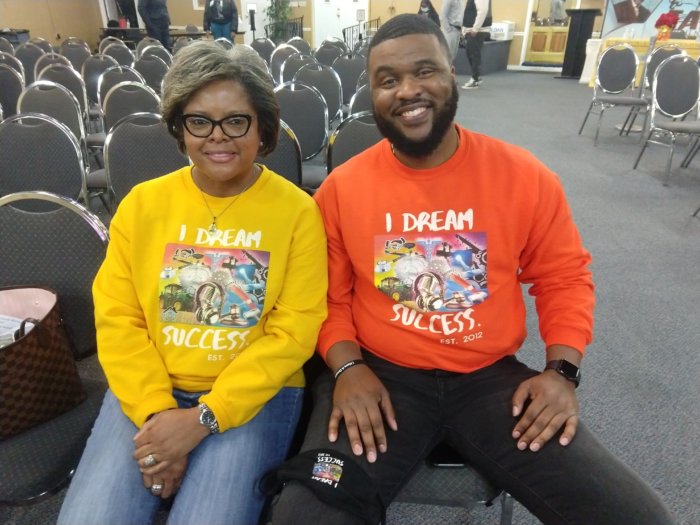
And on that afternoon in mid-January, when Murdock and Coates introduced the young men to Ronald Crawford, they aided them in finding a path toward healing, too. Despite their initial apprehension, as the music fell to a fade, every group member gave a positive review of the session.
“What I’m trying to do, is I’m trying to change the culture about therapy,” Crawford said. “About improving mental wellness so a group of people can get it and they can raise their children to have positive values about counseling and emotional wellness.”



